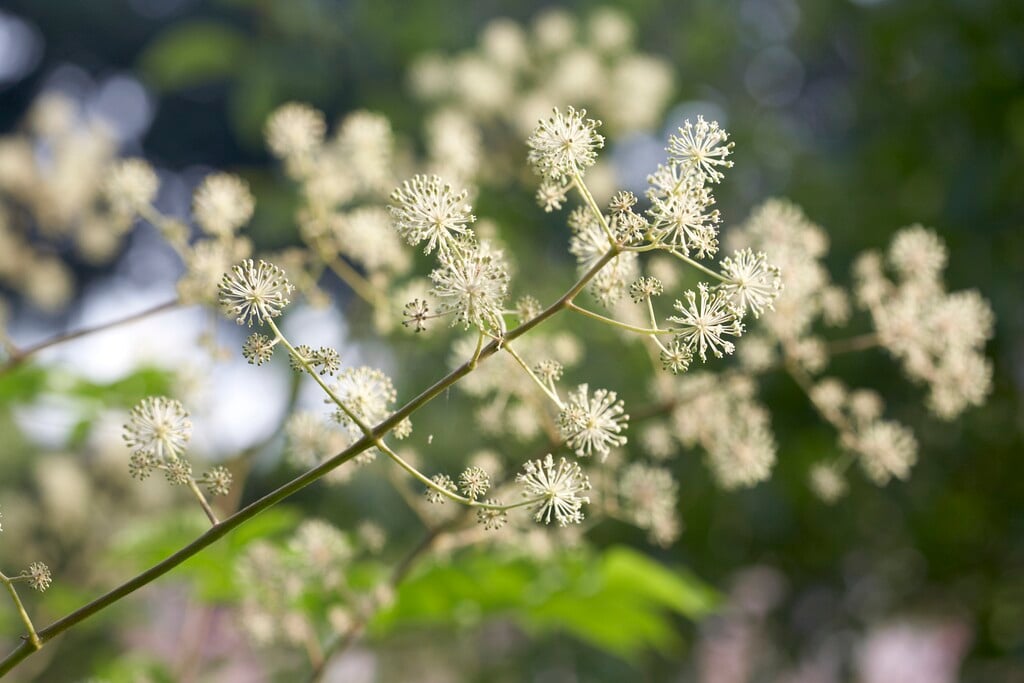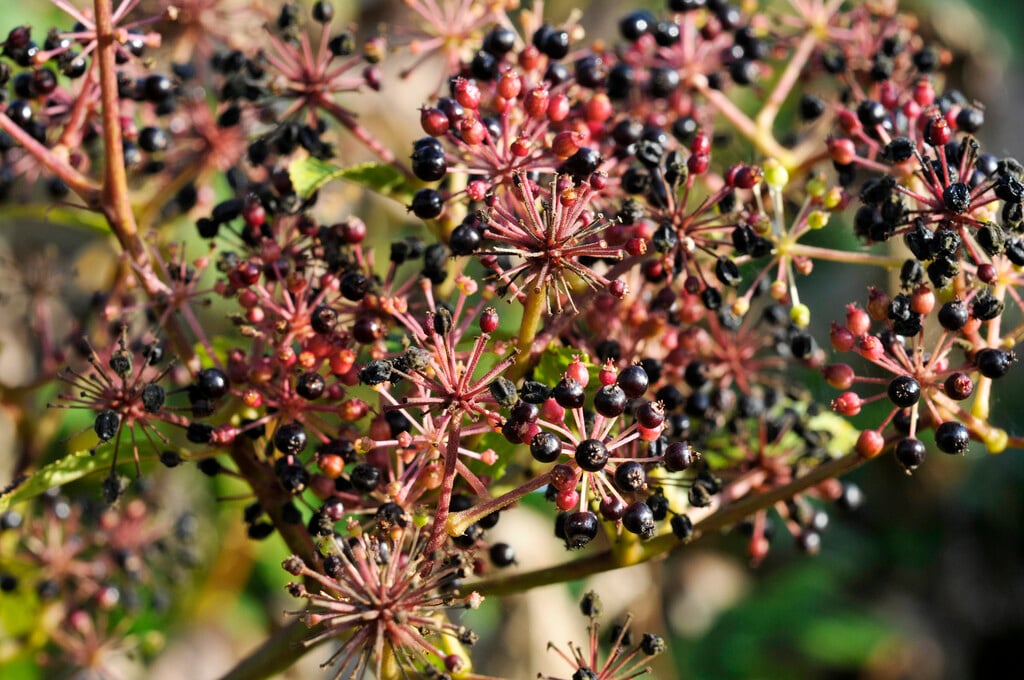Aralia californica
elk clover
A large, deciduous perennial with spiny stems and massive bi-pinnate leaves. Large loose clusters of greeny-white flowers in autumn, become dark-red, purple-black berries in winter.
Size
Ultimate height
2.5–4 metresTime to ultimate height
5–10 yearsUltimate spread
2.5–4 metresGrowing conditions
Moisture
Moist but well–drained, Poorly–drainedpH
Acid, Alkaline, NeutralColour & scent
| Stem | Flower | Foliage | Fruit | |
| Spring | Green | |||
|---|---|---|---|---|
| Summer | Green | |||
| Autumn | White Green | Green | ||
| Winter | Purple Red Black |
Position
- Partial shade
Aspect
East–facing or North–facing or South–facing or West–facing
Exposure
Sheltered Hardiness
H4Botanical details
- Family
- Araliaceae
- Native to GB / Ireland
- No
- Foliage
- Deciduous
- Habit
- Clump forming
- Genus
Aralia can be deciduous trees, shrubs or perennials, with large, simple or pinnately compound leaves and tiny greenish-white flowers in large terminal clusters, followed by small black fruits
- Name status
Correct
How to grow
Cultivation
Grow in any good moisture-retentive soil. Allow enough space for impressive leaves to display. For more information see shrub cultivation.
Propagation
Propagate by division in spring, or seed. For more advice see our information on how to propagate from seed (tree/shrub
Suggested planting locations and garden types
- Architectural
- Sub-tropical
Pruning
Tidy up in spring
Pests
May be susceptible to aphids
Diseases
May be susceptible to honey fungus in gardens where it is present but insufficient data to determine degree of susceptibility
Love gardening
Sign up to receive regular gardening tips, inspiration, offers and more
View our Privacy Policy
Get involved
The Royal Horticultural Society is the UK’s leading gardening charity. We aim to enrich everyone’s life through plants, and make the UK a greener and more beautiful place.

